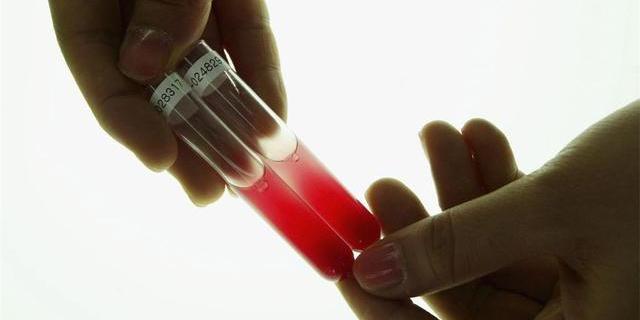
A group of road bandits in Guinea hijacked a Red Cross vehicle this week and made off with a cooler containing blood samples from suspected Ebola patients, officials announced on Friday. Authorities have appealed to the unidentified robbers to return the blood samples, which could potentially spread the deadly virus.
The samples had been under the supervision of a Red Cross courier who was in a taxi with eight other people when the three bandits on motorbikes stopped the vehicle, forced the passengers out, and robbed them. The incident happened near the city of Kissidougou, southern Guinea, in a rural area on Friday.
“We don’t understand why they stole the blood sample. Perhaps they thought there was cash hidden in the flask,” Faya Etienne Tolno, a spokesman for the Guinea Red Cross, told AP. The robbers also took mobile phones, cash, and jewelry alongside the blood sample – a much more logical heist from the perspective of a robber.
“We have informed the security services. If these thieves handle this blood, it will be dangerous,” said Dr. Barry Moumie, who heads patient care for the national Ebola response coordination committee. Ebola is spread primarily by contact with infected bodily fluids including blood, feces and vomit — hence the concern over the missing samples.
“I can assure you, however, that the sample-transportation procedures will now be strengthened to avoid such disappointments,” added Dr. Moumie.
The theft highlights ongoing problems with aid response despite an international effort to help West Africa. Ebola has caused more than 5,400 deaths in Liberia, Sierra Leone and Guinea, and sickened more than 15,000 people.
The incident has also roused discussion about the process for transporting such materials. The Guinea Red Cross apparently did not have transportation available, which is why it sourced out the delivery to a private taxi service. Dr. Hans Rosling, who is advising Liberia’s Ebola response, told AP that the usage of the taxi was actually a reasonable decision.
“We use specifically allocated motorbikes and cars. We use what’s available and what’s reasonable. We have to organize things as we go along,” he said. “It may have been the correct decision in Guinea (to use a taxi) and the robbery was just a sad mishap.”
“There’s no way we can secure transport in all of this area,” said Dr. Rosling. “It was a good initiative to try to get the sample out.”
Meanwhile, Dr. Anthony Fauci, director of the National Institute of Allergy and Infectious Diseases, told U.S. News the incident is not a top concern for him, particularly amid much more important issues.
“It speaks to the society problem,” he said, referring to the region’s poor health and governmental infrastructures, which have contributed to the se verity of the Ebola outbreak there. “There are a lot worse things going on in those countries. Health care workers were killed who were trying to take care of people. That’s worse than stealing samples, I should think.”
Attacks on health workers have occurred with startling frequency throughout the outbreak. One such attack took place in Guinea in September, in which an eight-member team of health workers, regional officials and journalists were killed with machetes and clubs by suspicious villagers.
In separate remarks delivered Friday at the National Press Club in the District of Columbia, Dr. Fauci urged the global community not to lose sight of the ongoing crisis, particularly amid a significant drop in media coverage. “It is not over,” he warned.
“We should be very careful to think that we are going in the direction of it being over,” said Dr. Fauci. “There is still a long way to go.”
